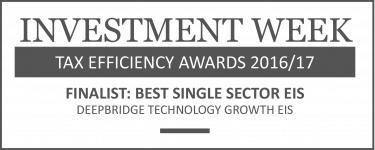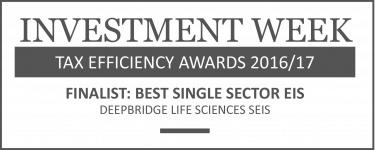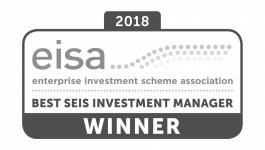

Chief Investment Officer Market Update - January 2025
The global landscape is poised for notable shifts over the next year. While much attention will be directed towards ongoing global trade tensions, many G7 nations appear to be moving towards greater political stability – unsurprisingly given more than 60 countries went to the polls in 2024. The United Kingdom has already experienced a transfer of leadership, and similar transitions are anticipated in the United States and Germany. In Germany, Olaf Scholz’s decline in popularity is expected to pave the way for a more stable administration following the February elections. France remains characteristically unpredictable, with its electorate prone to fostering agitation. In Canada, a period of uncertainty follows Prime Minister Trudeau’s resignation after years of unfulfilled economic ambitions. Italy, while navigating the complexities of far-right politics, is relatively stable by its historical standards. Japan stands as an outlier, grappling with a hung parliament after the snap elections of October 2024, though its political climate remains largely predictable.
While emerging markets have exerted downward pressure on the global economy, there are reasons for cautious optimism. As the adage goes, the darkest hour is just before dawn. A recent KPMG report projects a return to global growth in 2025, with the United Kingdom positioned to benefit from this recovery. Focus at this moment in time is government borrowing costs as these have had an uptick recently, probably trying to capture the risk of said global trade tensions with the incoming Trump administration likely to increase the levels of noise on tariffs.
However, any short-term economic uplift in the UK is unlikely to be sustained without addressing underlying structural challenges, particularly weak productivity growth and reduced labour force participation. There is now a pressing need for policy intervention to tackle these long-standing issues. The recently unveiled Modern Industrial Strategy aims to stimulate growth, with detailed initiatives expected in 2025. Central to this agenda is the National Wealth Fund (NWF), which will expand upon the UK Infrastructure Bank’s efforts to support projects aligned with the government’s industrial and growth objectives. Furthermore, the Manor House Compact is expected to channel greater domestic savings into the UK economy. This initiative, which includes pension funds committing to invest more in UK assets, represents a significant shift in strategy, as highlighted in an insightful recent article by the excellent Simon French of Panmure Gordon in The Times.
The Promise of Early-Stage Tech and Life Sciences
The UK continues to solidify its position as a hub for innovation, particularly in early-stage technology and life sciences sectors. These areas have consistently demonstrated their potential to drive transformative change across industries and society. Notably, the burgeoning field of artificial intelligence (AI) stands at the forefront of this innovation, with the UK Government recently highlighting this with their ‘AI Opportunities Action Plan’. From healthcare diagnostics and drug discovery to financial services and creative industries, AI’s advanced developments are reshaping the way we live and work. This rapid evolution offers well-positioned investors extraordinary opportunities to participate in the next wave of technological breakthroughs.
The life sciences sector remains equally compelling. The UK’s vibrant research base, bolstered by leading universities and innovation clusters, continues to foster groundbreaking advancements in healthcare and biotechnology. These include precision medicine, novel therapeutics, and advanced diagnostics, all of which address critical global challenges. Such innovation not only holds the promise of significant societal impact but also presents strong investment prospects for those who can identify early-stage opportunities.
Reviving the IPO Market and Venture Capital Momentum
From a venture capital perspective, attention is increasingly turning to the IPO market. The anticipated multi-billion-dollar IPO of Klarna (currently valued at approximately $20bn) is expected to provide substantial liquidity to early-stage investors and could catalyse a wave of other fintech listings, including Revolut, Monzo, and Starling. Such exits could inject much-needed dynamism into the venture ecosystem, which has seen assets linger in portfolios for extended periods in recent years. The prolonged holding periods for some high-potential companies—exceeding 10 years in certain cases—highlight the challenges faced by the sector.
Reducing these holding periods will require a revival of both the IPO and M&A markets. Encouragingly, Deepbridge Capital is making progress in this regard, with the recent exit of Perse and progress for several portfolio companies within our Exit Readiness Programme. These developments underscore positive momentum within our portfolio and provide me with confidence for future investor returns for our loyal, and much-appreciated, supporters within both the Deepbridge Technology Growth EIS and Deepbridge Life Sciences EIS.
Additionally, there is growing recognition that early-stage funds may become more prominent as investors seek meaningful stakes in high-growth areas, particularly artificial intelligence and healthcare. This shift underscores the importance of early-stage investment, a key rationale behind the launch of the UK Innovation Seed Fund, our recently launched SEIS initiative, which focuses on identifying and supporting opportunities within the UK’s vibrant regional tech and healthcare ecosystems.
A Balanced Outlook
In summary, while challenges remain, there are clear signs of progress and opportunity across both the UK economy and the venture capital landscape. Early-stage technology and life sciences sectors exemplify the innovative spirit that continues to define the UK. As these sectors drive forward advancements in AI, healthcare, and beyond, Deepbridge Capital remains committed to navigating these dynamics with prudence and a long-term focus.
Your support of early-stage companies is critically important, and it was great to see the extension of the Enterprise Investment Scheme (“EIS”) for a further ten years to 2035. In an environment of increasing taxation, this represents great news for appropriate investors.
Dr. Savvas Neophytou
Chief Investment Officer, Deepbridge Capital
- February 2026 (1)
- January 2026 (3)
- December 2025 (2)
- November 2025 (3)
- October 2025 (1)
- August 2025 (2)
- June 2025 (2)
- May 2025 (1)
- March 2025 (1)
- February 2025 (1)
- January 2025 (1)
- December 2024 (1)
- November 2024 (1)
- October 2024 (4)
- September 2024 (4)
- August 2024 (4)
- July 2024 (1)
- June 2024 (3)






















